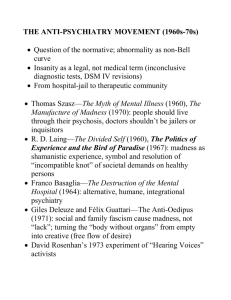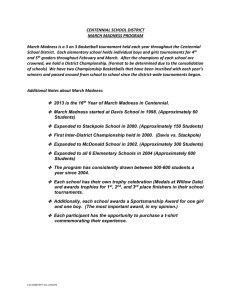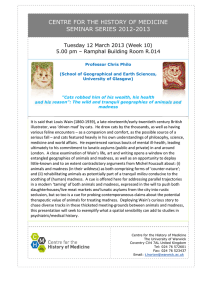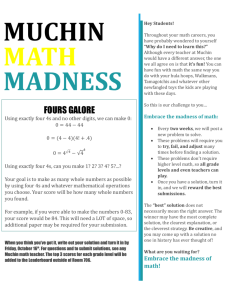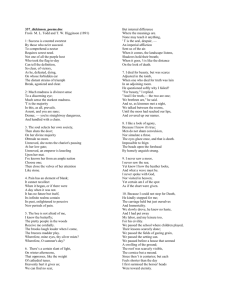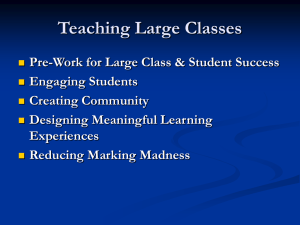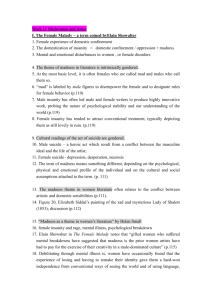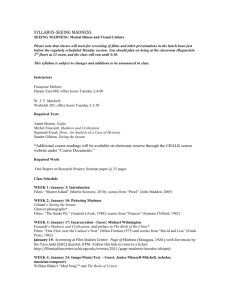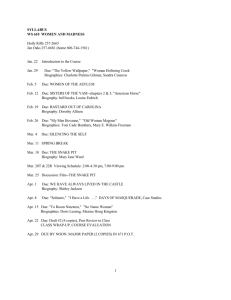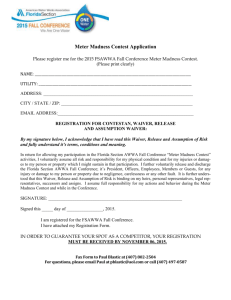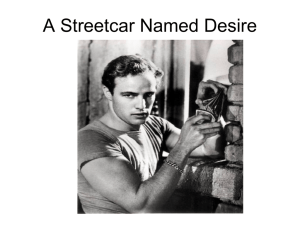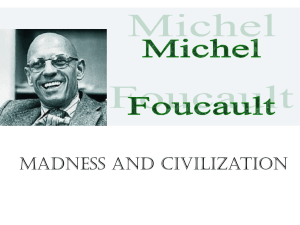Handout Week 2 (17.01.13)
advertisement
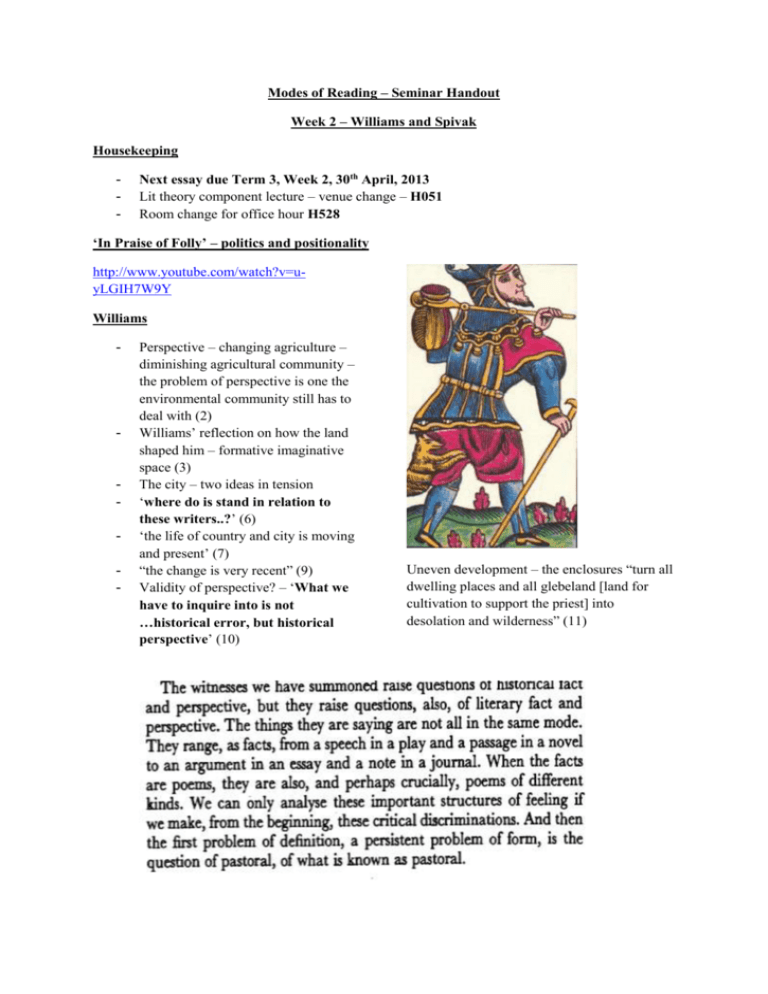
Modes of Reading – Seminar Handout Week 2 – Williams and Spivak Housekeeping - Next essay due Term 3, Week 2, 30th April, 2013 Lit theory component lecture – venue change – H051 Room change for office hour H528 ‘In Praise of Folly’ – politics and positionality http://www.youtube.com/watch?v=uyLGIH7W9Y Williams - - - Perspective – changing agriculture – diminishing agricultural community – the problem of perspective is one the environmental community still has to deal with (2) Williams’ reflection on how the land shaped him – formative imaginative space (3) The city – two ideas in tension ‘where do is stand in relation to these writers..?’ (6) ‘the life of country and city is moving and present’ (7) “the change is very recent” (9) Validity of perspective? – ‘What we have to inquire into is not …historical error, but historical perspective’ (10) Uneven development – the enclosures “turn all dwelling places and all glebeland [land for cultivation to support the priest] into desolation and wilderness” (11) Spivak - “Why not develop a certain degree of rage against the history that has written such an abject script for you that you are silenced?” (597) “Who should speak?” I less crucial than “Who will listen?” (594) I’m always uneasy if I’m asked to speak for my space (601) Others Veracity is disliked by kings [yet from fools] not only true things, but even sharp reproaches, will be listened to... [A] statement which .... from a wise man's mouth, might be a capital offence, coming from a fool gives rise to incredible delight [voluptatern]. Veracity... has a certain authentic power of giving pleasure [delectandt], if nothing offensive goes with it: but this the gods have granted only to fools (Erasmus, In Praise of Folly). ‘Art exists that one may recover the sensation of life’ / ‘…the author's purpose is to create the vision which results from that deautomatized perception’ / ‘…defamiliarization is found almost everywhere form is found’ (Shklovsky, ‘Art as Technique’) Foucault wanted to write a history of madness itself, that is madness speaking on the basis of its own experience and under its own authority, and not a history of madness described from within the language of reason, the language of psychiatry on madness. It is a question, therefore, of escaping the trap of objectivist naivete that would consist in writing a history of untamed madness.., from within the very language of classical reason itself... Foucault's determination to avoid this trap is constant. It is the most audacious and seductive aspect of his venture... But it is also, with all seriousness, the maddest aspect of his project. (Jacques Derrida, Writing and Difference) [Science fiction is] a literary genre whose necessary and sufficient conditions are the presence and interaction of estrangement and cognition, and whose main formal device is an imaginative framework alternative to the author's empirical environment (Darko Suvin, Definitions of SF) In 1982, Michael Vaughan had also been keen to place J.M. Coetzee within a literary classification whose ‘whole project…is in crisis, at question’, and whose ‘language has no universal competence. It can exemplify, but not explain…It can say next to nothing, and certainly nothing reliable, about experiences outside the modality of its own racial-historical dialectic’. Again it is the silence, the apparent refusal to give his subaltern characters depth that forces Coetzee ‘not adopt a stance of protest, but of analytical exemplification’. The assumption here seems to be that Coetzee is choosing – idealising even – aporetic analysis over direct political action. Questions My question with Williams' 'The Country and the City' is about his references to the University of Cambridge. He seems to contradict himself by connecting the country with birth and the city with learning, and then undermining one of the most venerable places of learning by quoting Young (344) who discusses 'the utter neglect of agriculture' at University. Why is this included? Is Williams suggesting that the culture of the city is flawed, and is he in favour of the more natural country way of life? How does this relate to 'The Lonely Londoners'? ...is there a movement from innocence to experience as the immigrants move from their rural Caribbean island communities to the metropolis of London? Is the city associated with learning, or is it presented as an inferior way of life compared to their original country?
